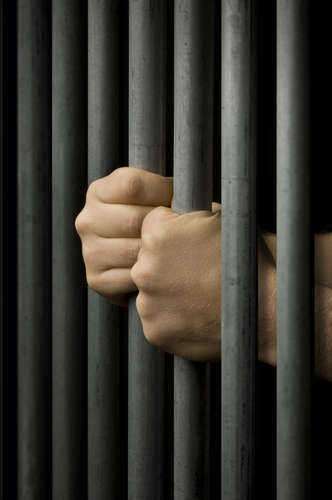Douglas County Jail
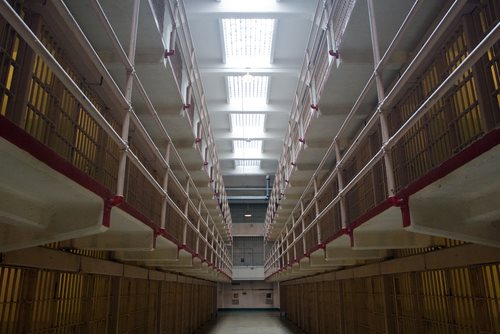

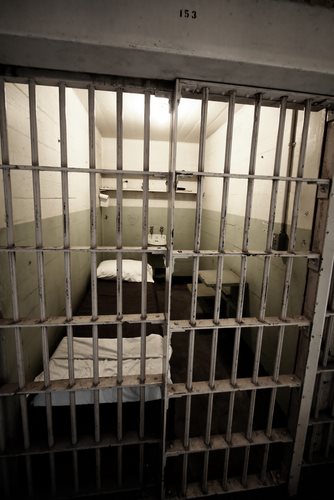
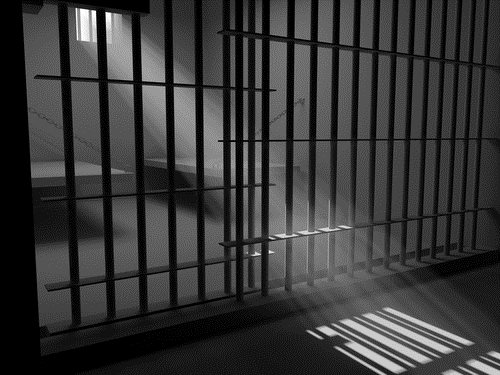
Gwinnett county jail
Gwinnett County Jail, or Gwinnett County Detention Center, holds inmates at 2900 University Parkway, Lawrenceville, Georgia. Friends and family of Gwinnett County Jail inmates can visit them, granted that the proper procedures are carried out, for 45-minute durations. Gwinnett County Jail inmates can receive visits of this kind on every day of the week save Friday, as long as the visitors are over 17 years of age. If not, minor Gwinnett County Jail visitors will only be allowed in on Sundays.
Fulton county jail
The city of Atlanta, Georgia and the overall county of Fulton can house prisoners in Fulton County Jail, located in this city at 901 Rice Street Northwest, reachable at 901 Rice Street Northwest. Fulton County Jail inmates may not be visited in-person, but family and friends can speak to the person who has been jailed in the facility through a Video Visitation session, an appointment for which can be made with the Fulton County Jail authorities.
DeKalb County Jail
DeKalb County Jail holds inmates in Decatur, Georgia, including all arrests made in DeKalb County as a whole, and thereby bypassing administrative distinctions between county, state and local charges and the arresting power of different agencies. If sentenced for a felony, a DeKalb County Jail inmate will typically be sent to a state-run holding facility. The DeKalb County Jail, by contrast, is administered by the DeKalb County Sheriff’s Office.
Douglas County Jail
Prisoners in Douglasville, Georgia are housed in Douglas County Jail, at 6840 Church Street, and can include over 750 different individuals waiting sentencing or otherwise under the custody of the Douglas County Sheriff’s Office. This office employs 84 sworn detention deputies, among other staffers, to administer Douglas County Jail and its inmate population. Inquiries concerning Douglas County Jail can be directed to (7700 942-4333, or to Douglas County Sheriff’s Office, Jail Division.
Metro State Prison
Metro State Prison houses maximum-security women convicted of felonies, including those sentenced to death row. Under the administrative power of DeKalb County, and the Georgia Department of Corrections, Metro State Prison is allowed to hold up to 705 women, who may be visited by friends and family via Video Visitation. The average age of a Metro State Prison inmate falls between 25 and 35, with the furthest extremes being 13 and 80, among whom 90% are mothers.
Contact Georgia lawyers for legal advice and assistance.
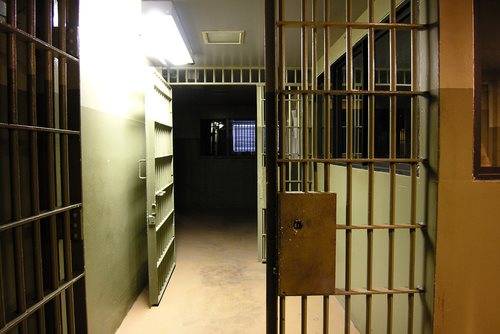
Pinellas county jail
Pinellas County Jail holds inmate requiring varying levels of security, from minimum to maximum. This holding facility is in Clearwater, Florida, at 14400 49th Street North and can be reached at (727) 464-6415. Since 2005, the inmate population of Pinellas County Jail has been registered online on a website maintained by the Pinellas County Sheriff’s Office. Pinellas County visitors are not accessible for face-to-face meetings, but can be consulted via Video Visitation sessions.
Marion county jail
Marion County Jail is a holding facility in Ocala, Florida operated by the Marion County Sheriff’s Office. The prisoners currently being kept in Marion County Jail can currently be looked up through the Inmate Database Search website for the county. Safety concerns have been raised for Marion County Jail inmates based on the July 2010 bludgeoning death of one prisoner at the hands of another inmate, who was charged with Second Degree Manslaughter.
Broward county jail
Broward County Jail is the holding facility maintained for the incarceration purposes of Fort Lauderdale, Florida, as well as surrounding areas. It is also referred to as the Main Jail. The Broward County Sheriff’s Office operates three other jails, as include the Paul Rein Detention Facility, Joseph V. Conte Facility, and North Broward Bureau. Broward County Main Jail is earmarked for the holding of inmates found to present maximum-security level threats.
Indian river county jail
Indian River County Jail holds prisoners in Vero Beach, Florida and is searchable online, in terms of its current inmate population, through the Indian River County Sheriff’s Office. Correspondence sent to Indian River County Jail inmates will be accepted only after it passes inspection, as will screen out letters and other communications with prohibited content, such as images of nudity. Letters scented with perfume or imprinted with lipstick will also be returned to the sender by Indian River County Jail authorities.
Hillsborough county jail
Hillsborough County Jail, or Orient Road Jail, holds around 4000 inmates, and in September 2010 held exactly 4194 different people, both men and women. Concerns have been raised about the Hillsborough County Jail population containing elements of the Latin Kings gang. The Arrest Inquiry search engine offered by the Hillsborough County Sheriff’s Office allows inquiries as to the people currently being held in the facility, and in-person visitation of inmates.
Dade county jail
Prisoners being held before sentencing or for other reasons in Miami, Florid may be incarcerated in the specific facility of Dade County Jail. This facility, also called the Miami-Dade County Pre-Trial Detention Center, is among several such facilities maintained by the Corrections and Rehabilitation department of the county, with others being the Women’s Detention Center, the Turner Guilford Knight Correctional Center, the Metro West Detention Center, and the Training and Treatment Center.
Osceola county jail
Osceola County Jail, or Osceola County Correctional Facility, is operated by the Osceola County Corrections Department at 402 Simpson Road in Kissimmee, Florida. The current Osceola County Jail inmate population can be searched online. The management of Osceola County Jail was altered recently after two inmates managed to escape from the facility, leading the county commissioners to bring in and approve Sherry Johnson as the new corrections head for the facility.
Escambia county jail
Prisoners in Pensacola, Florida can be kept by the Escambia County Sheriff’s Office in the Escambia County Jail, as can be reached by visitors at 1200 West Leonard Street, and by phone at (850) 436-9650. In addition to Escambia County Jail, inmates may also be held by the Escambia County Sheriff’s Office at the Central Booking and Detention Facility. Escambia County Jail has the holding capacity for imprisoning over 1600 inmates at a time.
Duval county jail
Jacksonville, Florida has a prisoner holding facility located at 500 East Adams Street, operated by the Duval County Sheriff’s Office and referred to either as Duval County Jail or the John E. Goode Pretrial Detention Facility, reachable at (904) 630-5747. In addition, the Duval County Sheriff’s Office can also choose to send prisoners to the James I. Montgomery Center, located at 4727 Lannie Road, or the Community Transition Center, at 451 Catherine Street.
Volusia county jail
In Daytona Beach, Florida, prisoners can be kept in the Volusia County Jail detention facility, or to the Volusia County Correctional Facility. First Appearances in court for people being held on legal charges can take place in a courtroom reserved for this purpose in the Volusia County Jail. Visitation rights for Volusia County Jail inmates are reserved, for the first 72 hour period of incarceration, to immediate family members of the prisoner in question.
Lake county jail
Lake County Jail can be reached at 551 W. Main Street, Tavares, Florida, and is called the Lake County Detention Center, serving to hold up to around 960 prisoners, administered to by 300 personnel, including 206 sworn-in deputies. Lake County Jail inmates are each accorded two one-hour visits a week, though not from people previously imprisoned in the same facility 366 days or less before the desired visitation date. Under 12 years of age, visitors are disallowed.
Lee county jail
Prisoners in Fort Myers, Florida are sent to Lee County Jail at 2501 Ortiz Ave., and to such various facilities as the Main Jail, the Core facility, and Community Program Units. Lee County Jail inmates are allowed to draw up Inmate Visitation Lists, comprising up to five individuals approved for visiting the facility. Inmates can approve times to be visited on the Sunday before the week in which the visitation is to take place.
Pasco county jail
The Pasco County Jail, or Land O’ Lakes Detention Center, is located in the town of the same name in Florida, and is one of two operated by the Pasco County Sheriff’s Office. In addition to the Land O’ Lakes-located facility, prisoners in Pasco County can also be sent to the New Port Richey jail. Between them, the New Port Richey and Land O’ Lakes Pasco County Jail detention centers typically hold 1222 prisoners.
Sarasota county jail
Sarasota County Jail, of Sarasota, Florida, has a holding capacity estimated to be around 50 and 60 prisoners, and is administered by 300 people. The Sarasota County Sheriff’s Office allows anyone who wishes to and has access to an Internet-connected computer to find out who is currently being held at Sarasota County Jail by using an online search function. Under age 18, visitation rights are withheld for those without adult guardians, and under age 12, are prohibited completely.
Collier county jail
Naples, Florida prisoners can be consigned, in some cases to the Collier County Jail at 3301 Tamiami Trail East, specifically in Building J of the Collier County Sheriff’s Office, and in other cases may be sent instead to the Immokalee Jail Center. Collier County Jail visitors are not, for the most part, accessible for being visited in person, but can instead be contracted via Video Visitation sessions, two of which are allowed a week, and one a day.
Manatee county jail
Jail inmates in Palmetto, Florida can be sent to Manatee County Jail, at 14470 Harlee Road. Family and friends can send money orders to the Manatee County Jail Inmate Account service. The inmate population capacity of the Manatee County Jail facility is around one thousand, and in the summer of 2010 had been brought down, from a previously excessive headcount, to the level of precisely 999 prisoners. A 400-inmate-capacity annex supplements Manatee County Jail.
Orange county jail in Florida
Orange County Jail in Florida is administered by the Orange County Corrections Department in Orlando, Florida, an organization more than 1800 employees and 1000 officers-strong. According to the Department, the Orange County Jail is one of around 170 jails in the United States, which contains in all nearly 3300 jails, granted national-level accreditation by the American Correctional Association. Inmates at the Orange County Jail in Florida can be visited through viewing screens.
Hernando county jail
Hernando County Jail is a Brooksville, Florida inmate-holding facility with a 818-prisoner capacity. The Hernando County Jail inmate population includes adults as well as juveniles charged as adults or sentenced for misdemeanors or felonies and both men and women prisoners. The Hernando County Sheriff’s Office administers Hernando County Jail and must grant approval before family and friends of inmates can be allowed into the facility to meet with the individual in question.
If you need legal advice and assistance, contact a Florida lawyer.

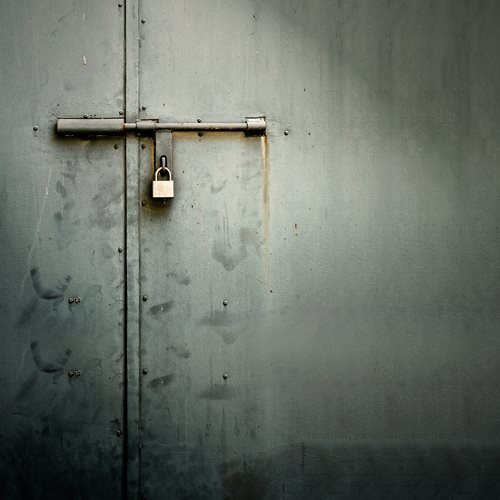
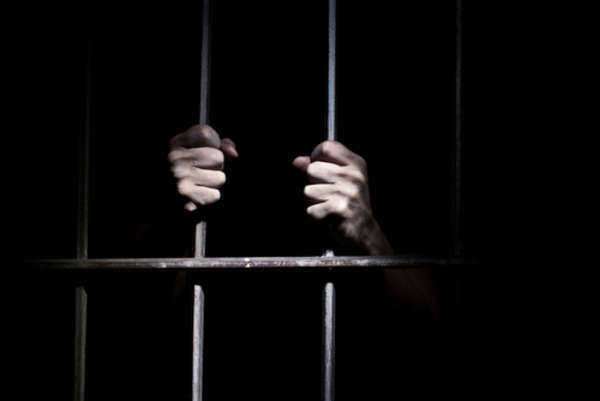
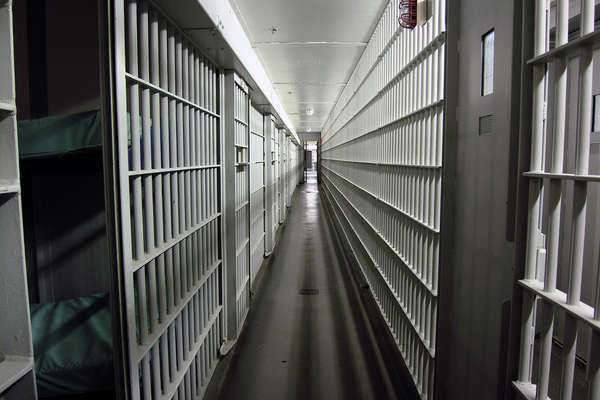
Indian River County Jail is a correctional facility located in Vero Beach, Florida. The jail is designed to house inmates either awaiting their trial dates or who have been sentenced to serve time. The facility is operated by the Indian River County Sheriff’s Office, which is responsible for ensuring the safety and well-being of both the inmates and staff members.
Over the years, the Indian River County Jail has been the site of several high profile cases, garnering attention from headlines across the country. Here are some of the biggest cases that have occurred at the Indian River County Jail:
On May 15, 2014, Gregory Johns, an inmate at Indian River County Jail was found dead in his cell. The cause of death was later determined to be asphyxiation by strangulation. The suspected perpetrator was another inmate, Larry Peavy, who at the time was serving a sentence for armed robbery. Peavy was charged with first-degree murder, to which he pleaded not guilty. However, in 2016, he was found guilty by a jury and sentenced to life in prison without the possibility of parole.
The murder of Gregory Johns raised concerns about the safety and security of inmates at the Indian River County Jail. Given that the two inmates were housed in the same cell block, questions were raised about how Peavy was able to access Johns’ cell and commit the crime unnoticed. The incident prompted the Indian River County Sheriff’s Office to review its procedures and make changes to prevent similar incidents from occurring in the future.
On July 13, 2020, Veronica Reyes-Diaz, a 28-year-old woman, was found dead in her cell at the Indian River County Jail. The cause of death was ruled as suicide by hanging. Reyes-Diaz had been arrested a few days earlier on charges of driving while under the influence. The incident sparked outrage and calls for an investigation into the quality of care being provided to inmates suffering from mental health issues.
Reyes-Diaz’s death shed light on the problem of mental health care in the criminal justice system, particularly for inmates who are awaiting trial. According to the Treatment Advocacy Center, jails and prisons are the largest providers of psychiatric care in the United States. However, the quality of care provided in these facilities is often inadequate, leaving inmates with mental illnesses at risk of harm to themselves and others.
On March 20, 2019, Diana Duve, a 26-year-old woman, was arrested on charges of driving under the influence. She was taken to the Indian River County Jail where she was held on a $50,000 bond. Two days later, she was found dead in her cell. The cause of death was later determined to be asphyxiation by hanging.
The circumstances surrounding Duve’s death raised questions about the quality of care being provided to inmates, particularly those who were at risk of harming themselves. Critics pointed out that Duve had a history of mental health issues and had attempted suicide in the past. Additionally, the jail was accused of neglecting to perform regular cell checks on Duve, which could have prevented her death.
In 2016, Clay Kearney, a deputy sheriff at the Indian River County Jail, was arrested on charges of sexual battery. The victim, who remains anonymous, alleged that Kearney had sexually assaulted her while she was in his custody. The incident occurred in 2014, and the victim reported it to the Indian River County Sheriff’s Office shortly thereafter.
Following his arrest, Kearney was terminated from the Indian River County Sheriff’s Office and later pleaded guilty to the charges. He was sentenced to ten years in prison and designated as a sexual offender. The incident raised serious concerns about the safety of female inmates, particularly those who were vulnerable to sexual abuse by those in positions of authority.
In 2014, David Winesett, an inmate at Indian River County Jail, was the victim of a brutal attack by another inmate. The attack left Winesett with severe injuries, including a punctured lung, broken ribs, and cuts to his head and face. The perpetrator was identified as Christopher Masson, who had a history of violent behavior.
Following the attack, Winesett’s family filed a lawsuit against the Indian River County Sheriff’s Office, alleging that the jail had failed to protect their son from harm. The lawsuit claimed that the jail was aware of Masson’s violent behavior and should have taken steps to prevent him from harming other inmates. The case was settled out of court for an undisclosed amount.
Introduction
The Indian River County Jail, located in the heart of Vero Beach, Florida, serves as a critical component of the state’s correctional system. Housing inmates from Indian River County and nearby areas, it plays a pivotal role in maintaining public safety and administering justice. In this in-depth article, we will explore the Indian River County Jail, shedding light on its history, operations, challenges, and efforts toward rehabilitation and reform.
History and Background
The Indian River County Jail has a rich history dating back to its inception in the mid-20th century. It was originally constructed in the 1950s and has undergone several renovations and expansions to meet the evolving needs of the community and the criminal justice system.
Facility and Infrastructure
The Indian River County Jail is a multi-building complex designed to house both pre-trial detainees and sentenced inmates. Its infrastructure is divided into different sections, each serving a specific purpose within the correctional system.
Inmate Rehabilitation Programs
One of the key aspects of any modern correctional facility is its commitment to inmate rehabilitation. The Indian River County Jail has made significant strides in this regard, recognizing the importance of equipping inmates with the necessary tools to reintegrate into society as law-abiding citizens.
Challenges and Controversies
Like many correctional facilities across the United States, the Indian River County Jail faces its share of challenges and controversies. Addressing these issues is essential to creating a more just and effective criminal justice system.
Reform and Future Directions
In recent years, there has been a growing recognition of the need for reform in the criminal justice system, including the operation of county jails like Indian River County Jail. Several initiatives and proposals aim to address the challenges and controversies faced by the facility.
Conclusion
The Indian River County Jail, like many correctional facilities across the United States, faces a range of challenges and controversies. However, it also embodies the potential for positive change through rehabilitation and reform efforts. As society continues to grapple with issues related to incarceration, the Indian River County Jail serves as a microcosm of the broader conversation on criminal justice reform and the pursuit of a more equitable and effective correctional system.
Indian River County Jail is in Vero Beach, Florida and is located at 4055 41st Avenue. The phone number for Indian River County Jail administrators is (772) 569-6700. As of September 2010, this facility was listed as currently housing 540 inmates. Information on Indian River County Jail and related procedures such as for visiting its inmates can be located on the Indian River County Sheriff’s Office’s website.
People who are interested in the current inmate population of Indian River County Jail can use an online function provided by the Sheriff’s Office. People can thus enter the name of the inmate, the date of which he or she was booked and that of his or her release, the serial number provided at the time of booking, and the inmate’s date of birth.
Inmates are allowed to send and receive mail, which is subject to being inspected. Images of nudity and images taken from the Internet cannot be sent to Indian River County Jail inmates, while any kind of material found to be “soiling” correspondence, such as perfume or lipstick, will provide cause to reject mail.
Letters should not contain images on the same sheet of paper, while correspondence cannot contain more than 20 photos, which individually must not exceed 4’’ x 6’’. Indian River County Jail inmates cannot send mail to other inmates in the same facility.
